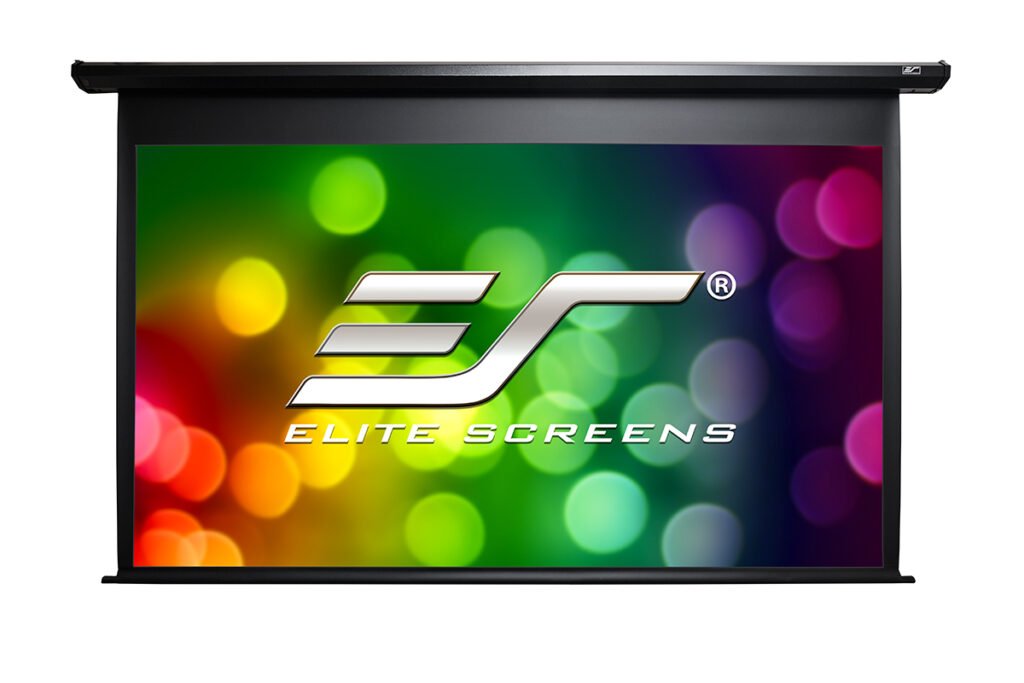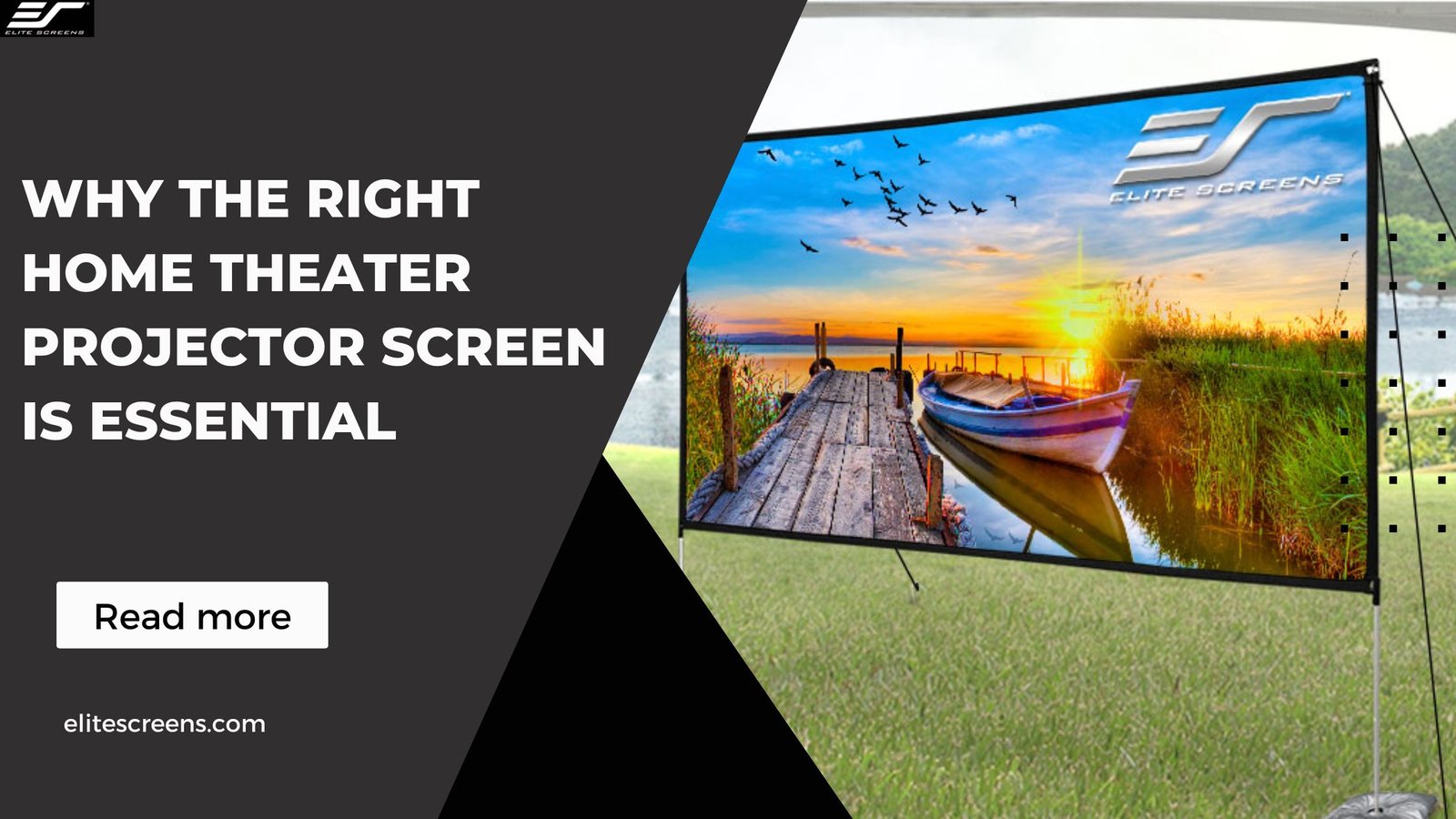When it comes to creating the ultimate home theater experience, the projector screen you choose can make all the difference. Selecting the best home theater projector screen is not just about aesthetics; it directly impacts the quality of the image, the clarity of the colors, and the overall viewing experience. A high-quality projector screen can elevate your home cinema from ordinary to extraordinary, ensuring that every movie night feels like a trip to the theater. With various options available, such as electric projector screens and portable short throw projectors, it’s essential to understand how each component interacts to create the perfect environment for movie watching. Whether you’re setting up a dedicated theater room or an adaptable space for different uses, investing in the right screen can significantly enhance your enjoyment and satisfaction.

Understanding Projector Screens: An Overview
Before diving into specific types of screens, it’s important to understand the basics of projector screens and their functions. A projector screen serves as the surface on which the projected image is displayed, and the quality of this surface affects how light is reflected back to the audience. The material, size, and type of screen all play crucial roles in the performance of your home theater system. Whether you’re using a portable short throw projector or a more traditional setup, the screen you select can enhance the brightness, contrast, and color accuracy of your projected images, leading to a more immersive viewing rience.
Why Material Matters: The Fabric of Your Screen
When selecting the best home theater projector screen, the projector screen material fabric is an often overlooked but critical factor. The fabric can influence how well the screen reflects light, affecting the brightness and clarity of the images displayed. Different materials are designed for specific environments and projectors, making it vital to choose the right one based on your setup. For instance, a matte white fabric is suitable for rooms with controlled lighting, while a high-gain material can enhance brightness in spaces with ambient light. Understanding the properties of various screen materials will help you choose one that complements your projector and maximizes your home theater experience.
Electric Projector Screens: Convenience Meets Quality
One of the most popular options for home theater setups is the electric projector screen. These screens offer unparalleled convenience, allowing you to easily retract or extend the screen at the touch of a button. This functionality is particularly useful for multi-purpose rooms where you may not want a permanent screen visible at all times. Electric screens also come in various sizes and aspect ratios, making it easy to find one that fits your specific needs. Moreover, many modern electric screens are designed with high-quality materials that optimize image quality, ensuring that your viewing experience remains top-notch regardless of the projector you use.
The Role of Screen Size in Your Setup
Screen size is another critical factor to consider when selecting the best home theater projector screen. A screen that is too small can make the viewing experience less engaging, while one that is too large can overwhelm the space and create discomfort. Ideally, the size of your screen should correspond to the distance from which you plan to view the image. A common guideline is to sit at a distance of about 1.5 to 2.5 times the screen diagonal for optimal viewing. This ensures that you can appreciate the details without straining your eyes. Whether you choose a fixed frame, retractable, or portable short throw projector, finding the right size will enhance your cinematic experience.
Lighting Conditions and Screen Selection
The ambient lighting in your room significantly influences the type of projector screen you should choose. If your home theater is equipped with blackout curtains and minimal light interference, you might opt for a standard matte screen that provides excellent color accuracy and contrast. Conversely, if you have windows or ambient light sources, you may need a high-gain screen or one designed for ambient light rejection (ALR). These screens are engineered to minimize the impact of external light, allowing you to enjoy your movies during the day or evening without sacrificing image quality.
The Importance of Installation and Placement
Proper installation and placement of your projector screen are crucial for achieving the best possible results. Whether you are using a fixed frame or an electric projector screen, ensuring that it is mounted at the correct height and angle will maximize your viewing pleasure. Ideally, the screen should be positioned so that the center is at eye level when seated. Additionally, make sure to consider the throw distance of your projector to avoid keystone distortion, which can occur when the image is projected at an angle. A little attention to detail during installation can greatly enhance your home theater setup.
Enhancing Your Setup with Accessories
To further elevate your home theater experience, consider investing in accessories that can complement your projector and screen. This includes quality audio equipment, such as surround sound systems, which can significantly enhance the immersive nature of movie watching. Additionally, consider acoustic treatments for your room, which can minimize sound reflection and improve overall audio quality. Accessories like projector mounts or ceiling brackets can also help you achieve the ideal setup, ensuring that every component works harmoniously together for a seamless experience.
Final Thoughts: Making the Right Choice
In conclusion, selecting the best home theater projector screen is essential for creating an engaging and immersive viewing environment. From understanding the importance of screen material to considering lighting conditions and installation techniques, every element plays a role in your overall home theater experience. Whether you choose a portable projector and screen for flexibility, an electric projector screen for convenience, or carefully select your screen material, making informed choices will lead to countless memorable movie nights. With the right setup, your home theater can be a space of joy, relaxation, and entertainment for you and your family.
Investing in the right home theater projector screen is not just a decision; it’s a commitment to enhancing your cinematic experience. By following these guidelines and understanding the essential factors, you can create a home theater that rivals the best commercial cinemas, bringing the magic of movies into your home.


